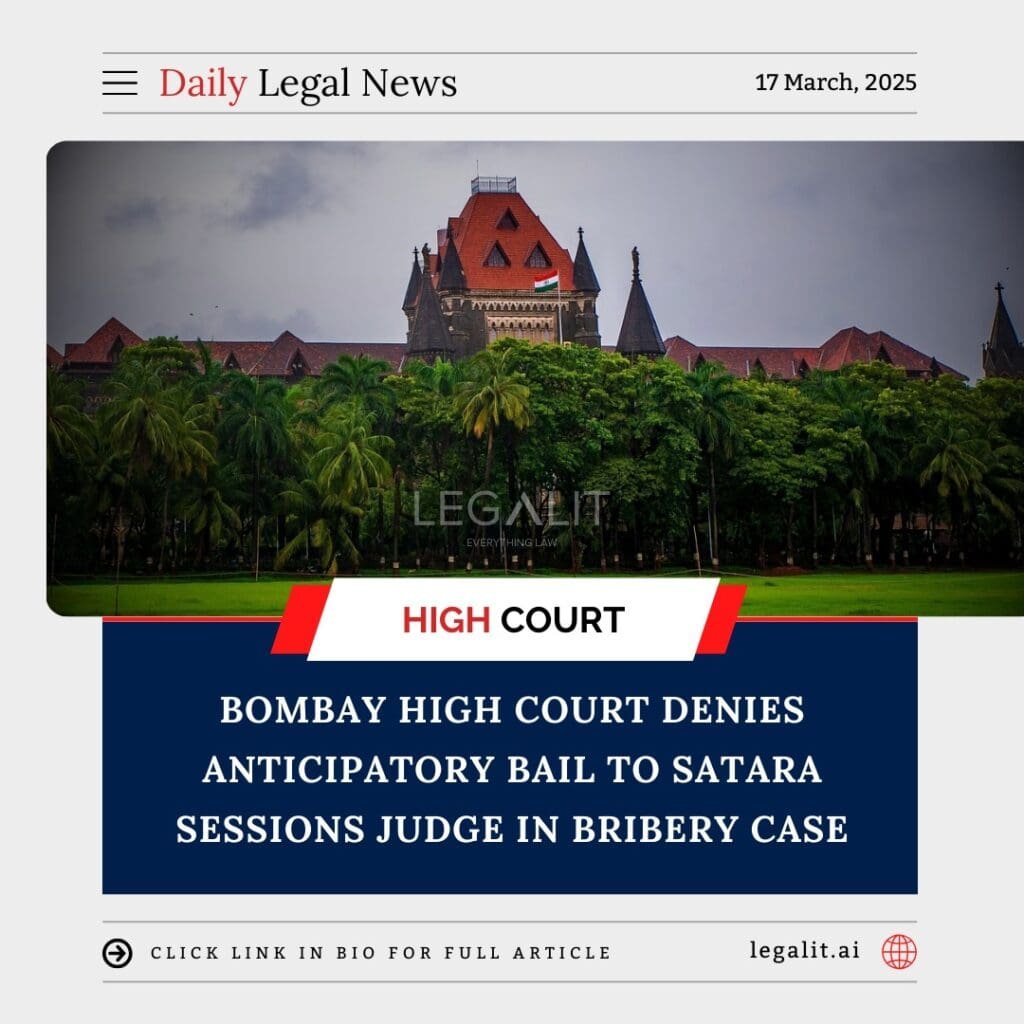
Background
The Bombay High Court has refused to grant anticipatory bail to a sessions judge from Satara, who is accused of accepting a bribe. The judge had sought pre-arrest protection after being booked under the Prevention of Corruption Act, 1988, following an investigation by the Anti-Corruption Bureau (ACB).
According to the prosecution, the judge allegedly demanded and accepted a bribe in exchange for granting relief in a pending case. The ACB conducted a preliminary inquiry and gathered evidence, leading to the registration of a case. Fearing arrest, the judge approached the High Court seeking anticipatory bail.
Court’s Rationale for Denial
- Seriousness of the Offense
- The court noted that corruption in the judiciary undermines public trust and the integrity of the legal system.
- Since the allegations involved misuse of judicial power, granting bail at this stage could hinder the investigation.
- Need for Custodial Interrogation
- The prosecution argued that custodial interrogation was necessary to unearth the full extent of corruption and identify possible accomplices.
- The court agreed, stating that anticipatory bail could obstruct the collection of crucial evidence.
- Judicial Accountability
- The court emphasized that judges, being custodians of justice, are held to a higher standard of integrity.
- Granting anticipatory bail in such cases could set a negative precedent, affecting public confidence in the judiciary.
Implications of the Judgment
- For Judicial Integrity – The ruling reinforces the principle that judicial officers are not above the law and must be held accountable for misconduct.
- For the Investigation – The decision allows authorities to conduct a thorough probe without legal hurdles.
- For Corruption Cases in Judiciary – This judgment may serve as a precedent for future cases involving allegations of judicial corruption.
Conclusion
The Bombay High Court’s refusal to grant anticipatory bail to the Satara sessions judge underscores the judiciary’s commitment to maintaining its integrity. The decision allows the ACB to proceed with its investigation, ensuring that allegations of bribery are thoroughly examined without interference.